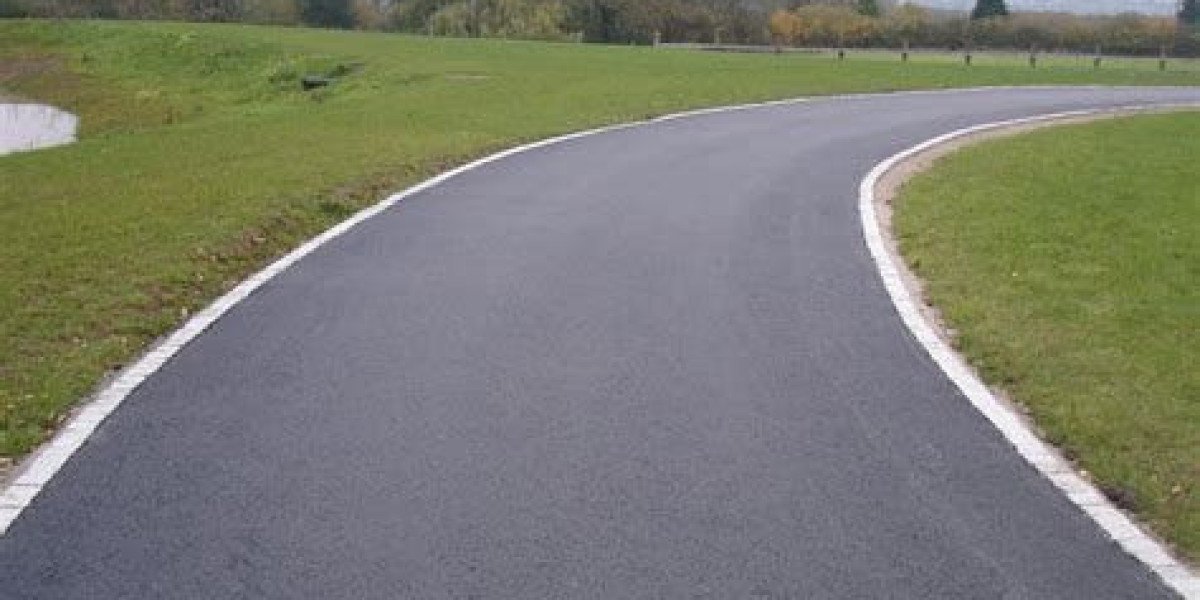Road surfacing is an essential component of infrastructure development, ensuring safe, smooth, and durable travel for vehicles and pedestrians alike. Whether you're planning a residential driveway, a commercial parking lot, or a new roadway, understanding the ins and outs of road surfacing is critical. If you're specifically looking for road surfacing services in Hampshire, you'll find expert advice and solutions tailored to the unique needs of this diverse region.
Read on to discover everything you need to know about road surfacing, common materials used, the step-by-step process, and how to find the best providers in Hampshire.
What Is Road Surfacing and Why Does It Matter?
Road surfacing Hampshire refers to the process of creating or repairing roadways by applying various materials like asphalt, concrete, or gravel to form a smooth, durable surface. But why is it so important?
A properly surfaced road offers:
- Safety for the community by reducing the risk of accidents caused by uneven or deteriorated roads.
- Comfort for drivers and pedestrians through smoother travel and reduced vehicle wear-and-tear.
- Longevity, ensuring roads can withstand varying weather conditions and heavy loads.
Quality road surfacing is a necessary investment, especially for regions like Hampshire, where the road network plays an integral role in daily commuting and business operations.
Road Surfacing Services in Hampshire
Hampshire boasts a blend of urban centers, rural landscapes, and coastal areas, each with its unique road surfacing challenges. Here's why investing in professional road surfacing services specifically in Hampshire is important:
1. Climate Considerations
The weather in Hampshire varies from mild summers to wet winters, which can take a toll on road surfaces. High-quality materials and proper drainage systems are critical to withstand these conditions.
2. Urban vs. Rural Needs
Hampshire has bustling towns like Southampton, Portsmouth, and Basingstoke, where high-traffic roads require frequent upkeep. Additionally, the rural stretches in areas like the New Forest demand different surfacing techniques and materials to suit low-traffic and natural surroundings.
3. Preservation of Aesthetics
Given Hampshire's historical landmarks and scenic beauty, road surfacing services often incorporate materials that maintain or enhance the area's visual appeal while delivering durability and functionality.
For residents and business owners in Hampshire, partnering with road surfacing providers familiar with the region's unique requirements is essential.
Types of Road Surfacing Materials
Not all road surfaces are created equal. Depending on the purpose, traffic levels, and environmental factors, different materials are used.
1. Asphalt
One of the most common materials in road surfacing, asphalt is known for its durability, affordability, and ease of maintenance. It is ideal for high-traffic areas due to its ability to withstand heavy loads.
Best uses: Urban roads, driveways, parking lots, and highways.
2. Concrete
Concrete surfaces offer exceptional strength and longevity. Although more expensive than asphalt upfront, they require minimal maintenance over time, making them a cost-effective solution in the long run.
Best uses: Highways, industrial zones, and areas with extreme temperatures.
3. Gravel
Gravel is a cost-effective solution often used in rural or low-traffic areas. It provides adequate durability and a natural aesthetic but requires regular maintenance to avoid wear and tear.
Best uses: Rural roads, pathways, and private driveways.
4. Resin-Bound Surfaces
Resin-bound surfaces combine durability with visual appeal. Made by mixing resin with aggregate stones, this option is increasingly popular for driveways and pathways due to its smooth, attractive finish.
Best uses: Driveways, walkways, and decorative areas.
The Road Surfacing Process Explained
Understanding the road surfacing process gives insight into the work involved in creating a durable surface. While the exact steps may vary depending on the project, here’s a general outline of what to expect.
Step 1: Site Preparation
The first step involves clearing the site of debris, leveling the ground, and ensuring the area is suitable for surfacing. Proper preparation is critical to the longevity of the road surface.
Step 2: Installing a Sub-Base
A strong sub-base layer is added for stability. The sub-base acts as the foundation for the surface layer, distributing weight evenly and preventing issues like potholes.
Step 3: Application of Surfacing Material
Depending on the chosen material (e.g., asphalt, concrete), the top surface is applied using specialized equipment. This layer provides the durability and smoothness of the road.
Step 4: Compaction
After the surfacing material is laid, it is compacted to create a solid, even finish. Proper compaction reduces the risk of cracks and uneven wear.
Step 5: Finishing Touches
Final steps include adding markings, signage, and ensuring drainage components are in place to prevent water damage.
Choosing the Right Road Surfacing Company in Hampshire
When searching for a road surfacing provider in Hampshire, here are some key factors to consider to ensure a successful project.
- Experience and Expertise
Look for companies with proven experience in handling projects of different scales, from small driveways to large highways.
- Material Quality
The durability of the road often depends on the quality of the materials used. Ensure the company uses premium-grade materials suitable for Hampshire’s climate and traffic conditions.
- Customer Reviews
Check online reviews and testimonials to gauge customer satisfaction. A reputable company will have a record of reliability and quality workmanship.
- Compliance with Regulations
Reputable providers adhere to industry standards and local regulations to ensure safety and longevity.
- Cost Transparency
Request a detailed quote that includes materials, labor, and any additional services to avoid hidden costs.
Road Surfacing Tailored for Hampshire
Hampshire offers a unique blend of urban and rural landscapes that demand tailored road surfacing solutions. Whether it’s the high-volume roads of Portsmouth or the quiet lanes of the New Forest, partnering with experts who understand the county’s specific needs can make all the difference.
Transform Your Roads With Professional Surfacing
Road surfacing is more than just laying down a smooth path; it’s about creating durability, safety, and value. For residents and businesses in Hampshire, finding the right road surfacing services ensures your investment pays off in the long run.
If you’re ready to upgrade your roads, contact a trusted road surfacing provider in Hampshire today. Their expertise, coupled with high-quality materials and tailored solutions, can bring your vision to life.








